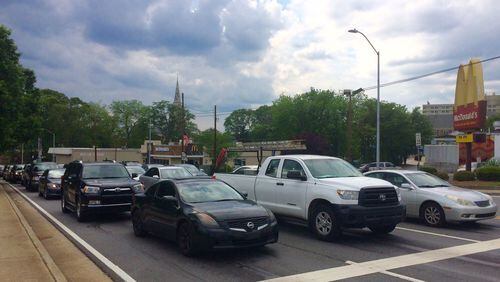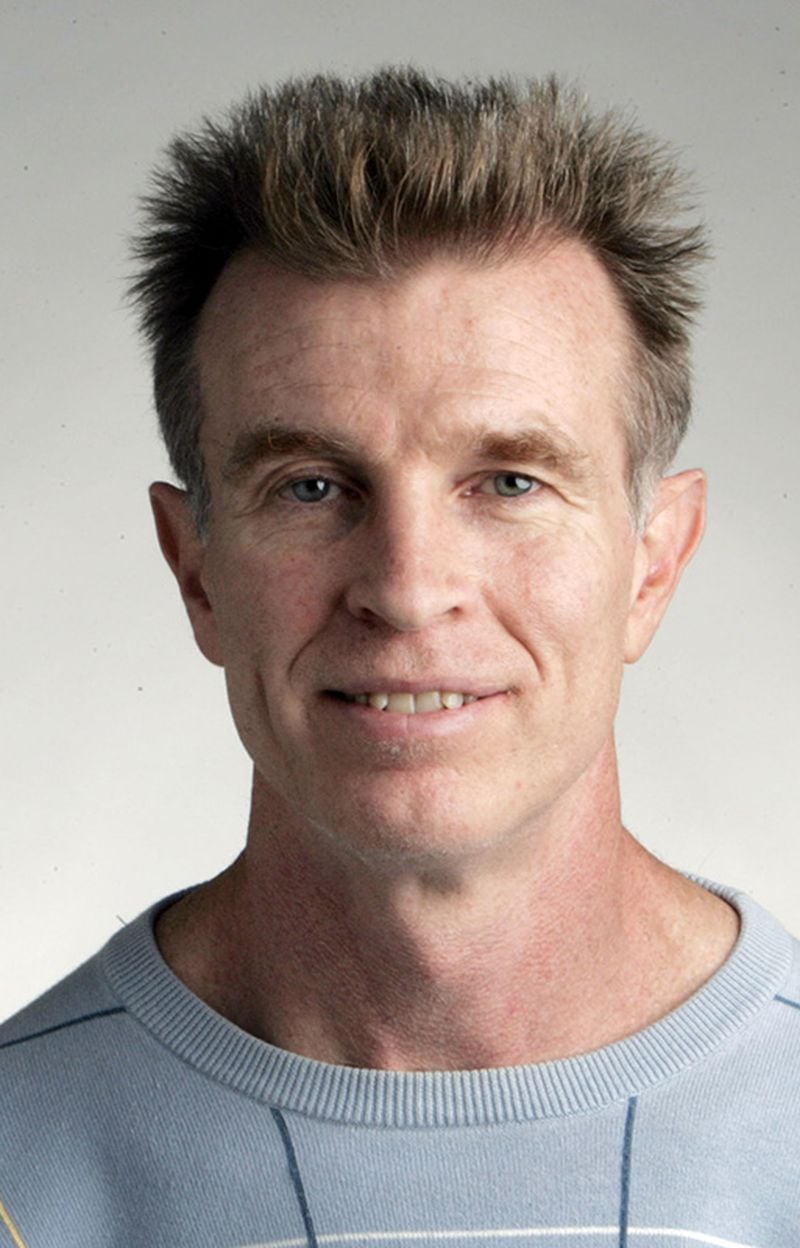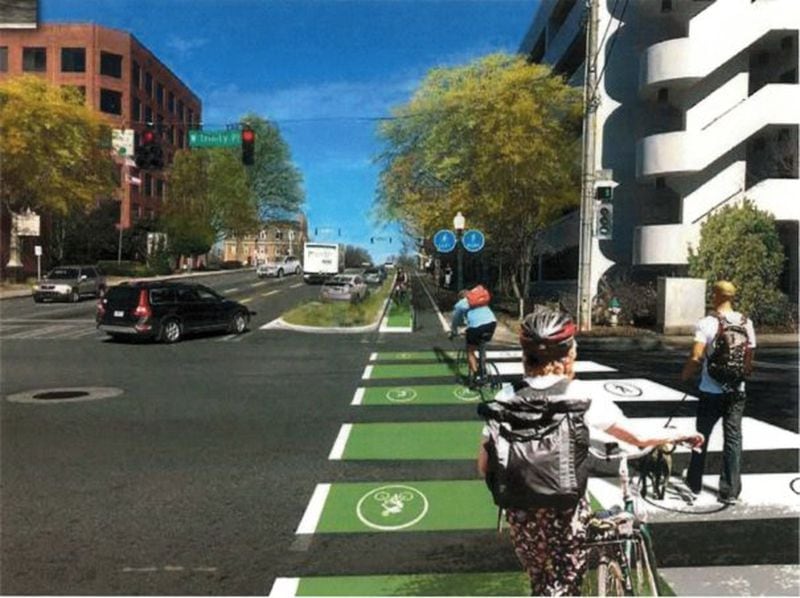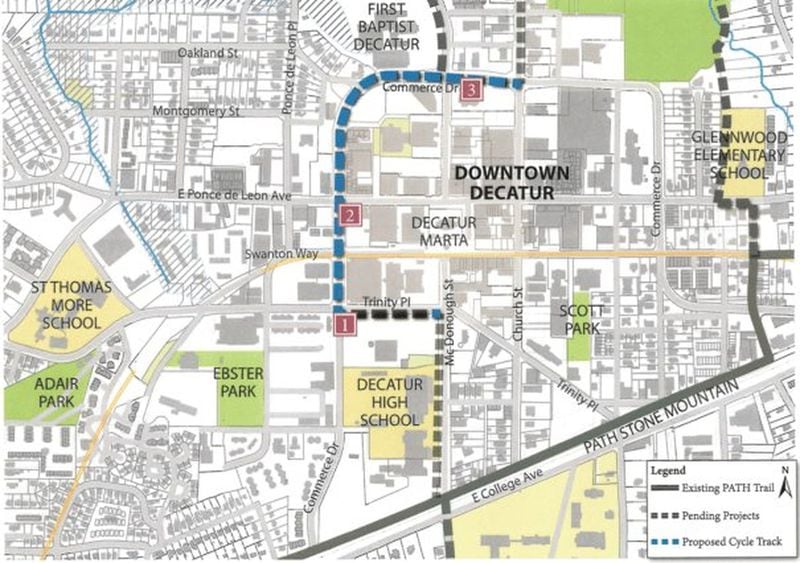Sometime this fall, construction crews will start tearing up a perfectly good commuter route in Decatur, cutting car capacity in half for the purpose of installing protected bike lanes.
Commerce Drive, which was built decades ago as sort of a mini-I-285 around downtown Decatur, will change from two lanes in each direction to one with turn lanes.
The city is putting Commerce Drive on a “road diet,” which is New Urbanism-speak for choking off a road to frustrate drivers with the hopes they’ll go someplace else.
The $1 million project ($200,000 coming from the PATH Foundation) is part of an ongoing counterinsurgency against autos, a plan that hopes to nudge motorists into leaving their vehicles at home and pedaling to work.
Granted, more people are already riding bikes to work. In 2014, the U.S. Census reported there had been a 60 percent increase over the past decade in workers commuting by bicycle!
That sounds good — until you realize only 0.6 percent of workers commute by bike. Yes, that’s point-six, or six-tenths of 1 percent.
For the sake of argument, let’s say Decatur is twice that, or even three times that, which would mean 2 percent of its residents pedal to work. And if this plan works, maybe 3 percent will.
Decatur has increasingly become an educated, progressive, bike-friendly oasis, a place where the homes of working-class folks are scraped by bulldozers and replaced by $800,000 old-timey new McMansions. These new residents are carving out their version of Nirvana and the ability to pedal about town is an important part of that vision.
But an equally important part of that vision is to keep other people from driving through their city. It’s a common desire — residents of communities, neighborhoods and cities don’t like nonresidents driving through their communities, neighborhoods and cities.
And if those residents have money or political clout, then keeping cut-throughs off their otherwise public roads is all the more likely to happen. Case in point, the No Thru Traffic signs that popped up in the tony neighborhoods near the I-85 bridge collapse.
Two years ago, Decatur was set to create old-fashioned bike lanes on Commerce Drive, a busy road that arcs across key arterial roads such as Church Street, Clairmont Road and Ponce de Leon Avenue.
But simply setting aside space for bikes and striping the asphalt wasn't good enough for the bike activists who hold sway in the People's Republic of Decatur. They created a petition arguing that the plan wasn't safe and pressured the pols.
So last month, the Decatur City Council approved the “Commerce Drive Cycle Track,” with isolated bike lanes.
The plan, however, is not universally embraced. Another petition criticized the "immense" number of "road diets" already occurring in Decatur — McDonough and Church streets — and one being planned on Howard Street.
The petition noted that Commerce was planned as a by-pass route, adding that the City Council has aggressively approved high-density residential buildings downtown, which has increased traffic to the roads.
Cutting lanes “will crush the already overwhelming traffic on Commerce,” the petition states. “Additionally, it will cause severe safety issues by forcing vehicles to cut through neighborhoods and through downtown Decatur.”
The petition got 219 signatures last week, although nearly half of those signed “Anonymous.”
Steiph Zargon, a retired photographer who lives just north of Decatur and who signed the petition, has a theory why: “God forbid you have an opinion unlike theirs. If you disagree then you’re some sort of hate group.”
Asked about the impact of cutting traffic lanes, Zargon said, “I see more traffic jams, and it will become a lot slower to get around. People will go through neighborhoods. They’re doing it now with 85 busted.”
While chatting I learned Zargon cuts through my neighborhood. “That’s OK,” I told him. “I cut through yours.”
But driving on Commerce is not cutting through a neighborhood. It’s driving on a well-constructed thoroughfare meant to accommodate traffic. Like it or not, Decatur is a historical crossroads where several key routes intersect.
That’s probably the point, said Ken Craig, a Decatur resident who works in the tech industry and has school-aged kids.
"I get the sense there's a push to make it unpalatable for people to drive through Decatur," he said. "There's a point where you're not going to convert more drivers to riders. The best case here is you'll create dozens of new bicycle riders."
Longtime resident James Wiley, an architect, summed up the feeling of many: “Enough sacrifices to the Bicycle Gods!” he wrote on the petition.
"There's a selfishness to this, an effort to force motorists to go somewhere else; it seems punitive," he said in an interview. "We're far too willing to sacrifice a valuable, high-capacity road. They want to make you behave the way they think you should behave in a perfect world."
In a letter to the local newsblog Decaturish.com, several biking activists defended the plan, saying it is meant to "improve traffic congestion by encouraging more citizens to leave their cars in their driveways."
The letter continued that “if even a small percentage of motorists leave their cars at home, the effects on traffic can be striking.”
Decatur Mayor Pro-tem Fred Boykin, an elected official since 2001 and retired owner of Bicycle South, admitted the move “will make it more difficult to drive through the city. You’re changing traffic patterns and you’re subtracting capacity.”
Many current motorists who use Commerce will probably use different routes, he said, both in the city and outside of it.
Boykin said he was elected to push for the wishes of Decatur residents. He said a majority want a more walkable, bike-friendly city.
It turns out he wasn’t elected by you folks just cruising through, trying to get somewhere in a timely manner.
About the Author










